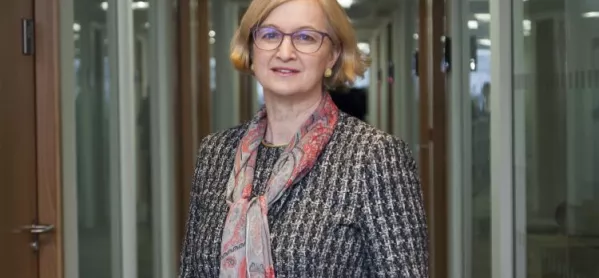“Behaviour management is a subject that causes a lot of heat, and sometimes rather less light.”
So says chief inspector Amanda Spielman, who has chosen to make behaviour the theme of Ofsted’s first major announcement of this school year.
This “heat” can certainly be felt on social media, where the issue of behaviour and how schools deal with it is at the heart of the ongoing debates about standards, as well as inclusion and exclusion.
Quick read: How DfE behaviour crackdown will work.
Ofsted: Spielman says schools must get parents’ backing on behaviour policies
Background: Ofsted to check on new teachers’ behaviour training
It seems that Ms Spielman now wants Ofsted to bring the light.
To this end, inspectors have been speaking to schools about how they manage behaviour and are planning further research to identify what the most successful schools are doing on behaviour management.
In her new commentary on the issue, Ms Spielman suggests that contentious terms such as “restorative justice” and “zero tolerance” were rarely mentioned by heads and teachers whom Ofsted spoke to.
Ofsted focused on behaviour
Does that mean a zero-tolerance approach is a thing of the past? Or is it just that some schools with stricter policies don’t think of themselves in this light and don’t think it accurately describes what they do.
Mark Lehain, director of Parents and Teachers for Excellence, wrote for Tes earlier this month about what he described as a new movement of schools with “warm and strict” behaviour policies.
This term perhaps better fits with how some schools see themselves.
But a quick check on edutwitter shows that this term is no less contentious and has triggered the same behaviour debates that people were having about zero-tolerance schools.
A question that Ms Spielman doesn’t answer is where Ofsted sits on the debate about how schools should best manage behaviour.
But, interestingly, this could be about to change.
There is a greater focus on behaviour under Ofsted’s new inspection regime. Ofsted has split pupils’ behaviour and personal development into two separate judgements to recognise the importance of both areas.
Ofsted has said it will be looking to schools to ensure that pupils have positive attitudes and high attendance. It also wants schools to create a positive environment in which bullying is not tolerated.
And Ms Spielman also talked about the need for schools to have a whole-school behaviour management policy that is “clear, consistent and communicated to staff, pupils and parents.” She said schools should embed routines to minimise disruption and ensure classroom lessons run smoothly and that pupils should move safely around the school.
But she admitted that Ofsted not yet identified what the schools that are best at managing challenging behaviour do that differs from those that are less successful.
“While we know it is imperative that we actively teach pupils desired behaviours, we do not know enough about how the most effective schools do this,” Ms Spielman.
Ofsted is now planning further research to shed more light on this.
It will be interesting to see whether the inspectorate can build a consensus for how schools should manage behaviour, whether it will praise a variety of different approaches or if it will be seen as favouring one approach over another - an accusation it has faced on the issue of the school curriculum.
Ofsted may want to shed more light on behaviour management, but I would also expect its findings will generate more heat in what will remain a subject of fierce debate.





